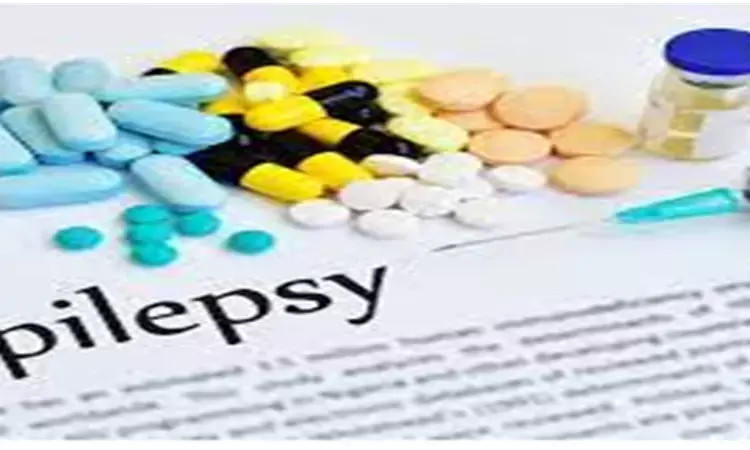- Home
- Medical news & Guidelines
- Anesthesiology
- Cardiology and CTVS
- Critical Care
- Dentistry
- Dermatology
- Diabetes and Endocrinology
- ENT
- Gastroenterology
- Medicine
- Nephrology
- Neurology
- Obstretics-Gynaecology
- Oncology
- Ophthalmology
- Orthopaedics
- Pediatrics-Neonatology
- Psychiatry
- Pulmonology
- Radiology
- Surgery
- Urology
- Laboratory Medicine
- Diet
- Nursing
- Paramedical
- Physiotherapy
- Health news
- Fact Check
- Bone Health Fact Check
- Brain Health Fact Check
- Cancer Related Fact Check
- Child Care Fact Check
- Dental and oral health fact check
- Diabetes and metabolic health fact check
- Diet and Nutrition Fact Check
- Eye and ENT Care Fact Check
- Fitness fact check
- Gut health fact check
- Heart health fact check
- Kidney health fact check
- Medical education fact check
- Men's health fact check
- Respiratory fact check
- Skin and hair care fact check
- Vaccine and Immunization fact check
- Women's health fact check
- AYUSH
- State News
- Andaman and Nicobar Islands
- Andhra Pradesh
- Arunachal Pradesh
- Assam
- Bihar
- Chandigarh
- Chattisgarh
- Dadra and Nagar Haveli
- Daman and Diu
- Delhi
- Goa
- Gujarat
- Haryana
- Himachal Pradesh
- Jammu & Kashmir
- Jharkhand
- Karnataka
- Kerala
- Ladakh
- Lakshadweep
- Madhya Pradesh
- Maharashtra
- Manipur
- Meghalaya
- Mizoram
- Nagaland
- Odisha
- Puducherry
- Punjab
- Rajasthan
- Sikkim
- Tamil Nadu
- Telangana
- Tripura
- Uttar Pradesh
- Uttrakhand
- West Bengal
- Medical Education
- Industry
Lacosamide monotherapy promising therapy for childhood epilepsy with centrotemporal spikes

JAPAN: A study published in Brain and Development shows that lacosamide monotherapy for the treatment of childhood epilepsy with centrotemporal spikes (CECTS) is well tolerated and reduces seizures significantly with fewer adverse effects. Therefore, lacosamide may be a good candidate as a first-line medication for the treatment of new-onset CECTS.
Childhood epilepsy with centrotemporal spikes is an age-limited focal epilepsy syndrome, with a typical onset at 5–8 years. It accounts for 15–20% of all childhood epilepsies. The use of antiepileptic drugs is not always recommended but the frequency of seizures, daytime seizures, or the evolution to bilateral tonic-clonic seizures warrant the use of medical treatments.
Tohru Okanishi, associate professor of child neurology at Tottori University in Japan, and colleagues conducted a retrospective, multicenter study to examine the safety and efficacy of lacosamide (third-generation antiepileptic drug ), monotherapy for the treatment of CECTS. 18 children (12 boys, 6 girls; mean age, 7 years), all of whom developed seizures between the ages of 3 and 13 were included in the study. Participants also demonstrated minimum hemifacial or oropharyngeal seizures and interictal discharges in central and/or middle temporal electrodes had no intellectual disability and were treated with lacosamide for 6 months.
Researchers started participants on lacosamide at 2 mg/kg per day twice daily and increased it to 4 mg/kg per day in patients weighing 30 to 50 kg and to 6 mg/kg per day in patients weighing less than 30 kg. Seizure occurrence was measured at 0 to 3 months, 4 to 6 months, and 7 to 12 months from treatment initiation as well during the last 6 months of follow-up.
Results showed that
• Of all the patients, 39%, 67%, and 72% were seizure-free during 0–3, 4–6, and 7–12 months from treatment initiation, respectively.
• Further, 72% of patients were seizure-free within 4 months of treatment, Seizure freedom was achieved in 72% during the first 4 months of treatment
• 83% gained seizure freedom by the last follow-up.
• All patients continued lacosamide monotherapy during the study, although four patients showed transient fatigue or somnolence. However, the symptoms disappeared within 4 weeks.
• No cognitive disturbance was observed during the maintenance treatment period
• There were no severe adverse events in any patient.
During follow-up, all patients continued treatment with lacosamide.
Author Okanishi and colleagues thus concluded," Lacosamide showed promising efficacy for controlling seizures with fewer adverse effects, and therefore may be a good candidate as a first-line medication for the treatment of new-onset CECTS."
Reference:
Okanishi T, Fujii Y, Sakuma S, Shiraishi H, Motoi H, Yazaki K, Enoki H, Fujimoto A. Lacosamide monotherapy for the treatment of childhood epilepsy with centrotemporal spikes. Brain Dev. 2022 Jun;44(6):380-385. doi: 10.1016/j.braindev.2022.02.005. Epub 2022 Feb 28. PMID: 35241306.
BDS
Dr. Hiral patel (BDS) has completed BDS from Gujarat University, Baroda. She has worked in private dental steup for 8years and is currently a consulting general dentist in mumbai. She has recently completed her advanced PG diploma in clinical research and pharmacovigilance. She is passionate about writing and loves to read, analyses and write informative medical content for readers. She can be contacted at editorial@medicaldialogues.in.
Dr Kamal Kant Kohli-MBBS, DTCD- a chest specialist with more than 30 years of practice and a flair for writing clinical articles, Dr Kamal Kant Kohli joined Medical Dialogues as a Chief Editor of Medical News. Besides writing articles, as an editor, he proofreads and verifies all the medical content published on Medical Dialogues including those coming from journals, studies,medical conferences,guidelines etc. Email: drkohli@medicaldialogues.in. Contact no. 011-43720751


